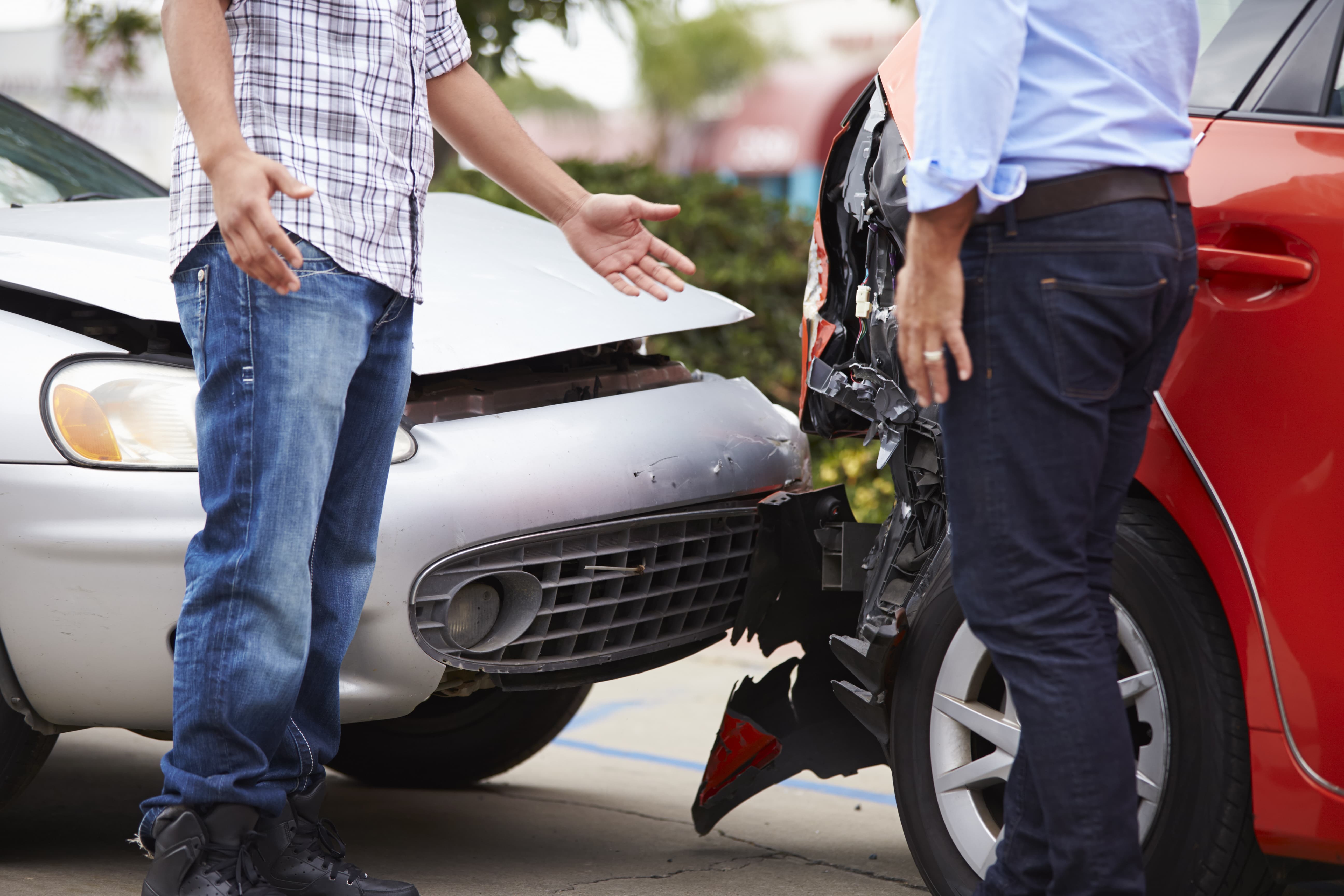How Much Can Someone Sue for a Car Accident?
An accident victim’s best chance of getting the amount of money they deserve from a negligent driver might be a lawsuit. But exactly how much can someone sue for a car accident?
Technically, a plaintiff can sue a defendant for any amount they choose. But realistically, the amount of an accident settlement is meant to compensate the victim—not make them rich. Cases with the most generous monetary awards usually include severe, life-changing injuries or even death. Not only is it difficult to place a dollar value on these things, but no amount of money can truly make up for them.
Deciding to Sue for a Car Accident
Accident victims often find it helpful to have an attorney act on their behalf with insurance companies. They can advise on whether or not a settlement is fair. When the total of available insurance money is not enough to cover the medical expenses and property damage from an accident, it might make sense to sue. In Missouri, accident victims have 5 years to sue. In Illinois, it’s only 2 years. Those who hire a lawyer right after the accident have a head start with someone who is already familiar with their case in the event a lawsuit is necessary.
When seeking a claim, going to court for a car accident is not nearly as common as people think. About 95% of all personal injury claims reach a settlement outside of court. An experienced personal injury attorney, like our car accident lawyers in St Louis, can help a victim through the process and to answer some important questions:
- Does the victim have a valid case with a good chance of winning?
- What information is relevant to the case? (Including help collecting it.)
- What is the appropriate amount to ask for at trial?
- Does the victim understand the pros and cons of going through a trial?
Filing a lawsuit is a big decision, and the last question is more important than some people think. Compared to accepting an insurance settlement, going to trial is an investment in time and money with an unpredictable outcome. While a lawsuit can get the victim full and fair compensation for their losses, it can also fail. The final decision is up to the judge or jury. There is always a chance that the victim could be awarded nothing. This is why the help of an attorney is essential.
Suing For an Amount That “Makes Whole”
A legal term often heard during personal injury cases is “make whole”. This means that the victim should receive an amount of compensation that will restore their condition—both physically and financially—to what it was before the car accident.
In some cases such as severe physical or psychological trauma, dismemberment, or death, this isn’t possible. The goal in these situations is to get the person as close to their prior abilities and way of life as possible. For example, losing a limb is permanent, but a prosthetic limb can allow the person to function again. The costs associated with this aim to “make whole”.
All of the expenses from the past, present, and future, necessary to accomplish this make up the amount that someone typically sues for after a car accident.
Special compensatory damages are the easiest to calculate. These consist of all of the actual expenses from the accident, such as:
- The cost to repair or replace damaged property
- Emergency services such as an ambulance and hospital bills
- Medical bill for doctors, surgery, medication, and medical equipment
- Rehabilitation facility, nursing home, or at-home care costs
- Physical therapy sessions
- Ongoing follow up with physicians, chiropractors, and mental health professionals
- Lost wages during recuperation
- Lost future earnings or professional opportunities
- Reimbursement for cancelled trips or events
General compensatory damages are harder to put a price on, but may be included.
- Pain, suffering, and mental anguish
- Loss of companion (in the event of a loved one’s death in the accident)
Punitive damages are included only if the at-fault driver acted with malicious intent. This amount serves as a punishment on top of any other dollar amount that the victim might collect. It is hard to prove that someone wasn’t merely negligent, but also intended to cause harm.
Other amounts might be included in the amount an accident victim sues for, such as any insurance deductible they had to pay or legal fees. Attempts to recoup any costs that are the result of the accident might be included in a lawsuit.
Should You Settle With the Insurance Company Instead?
The most important thing immediately after an accident is to make sure everyone is safe and to get help for anyone who is injured. After that, start gathering information. Our article “What to Do After a Car Accident?” provides a checklist of steps to take.
If the accident is a minor one (like a fender bender), dealing directly with the insurance company will probably be straightforward. The more serious the crash, the more important it is to get representation from an attorney. Even if a negligent driver has sufficient coverage, the claims process can be confusing and frustrating.
Some insurance companies will go to great lengths to avoid paying claims. They will find every available loophole and may try to shift blame from their at-fault client. When they do settle, they will try to do it quickly and for as little as possible.
It’s important to consider a settlement offer very carefully and make sure it covers all of the accident expenses, including future costs. As soon as a victim accepts a settlement, they waive their right to sue. A lawyer hired by the victim is working with one goal in mind: to get their client the best settlement possible. If that can’t be done through the insurance company, they are prepared to fight for their client in court.
Assigning Blame for a Car Accident
All of the information collected at the accident site becomes part of the insurance claim file. The insurance company will decide who is at fault based on these details. Remember, though, that the company will try to avoid paying anything if they can.
A ticket issued at the scene is a good indicator of who is to blame, but it’s not a guarantee. In some cases, both drivers could be ticketed for separate violations, but one may have clearly caused the accident. Also, note that not all states assign blame in the same way. For example, in Missouri, each person is responsible for their portion of the blame. In Illinois, however, if one is more than 50% at fault, they must take 100% of the responsibility.
The at-fault driver’s insurance company reviews the amount requested by the victim to pay for medical bills and car repair. The company can decide to pay the amount (assuming it is within the insured’s policy limits), deny the claim (by denying their client was to blame), or by making a counteroffer for a lower amount.
If the at-fault driver does not have auto insurance, or if their limits are low, the victim can tap into his or her own Uninsured Motorist or Underinsured Motorist coverage.
It’s worth having an attorney as a guide through all of this red tape. They will make sure the victim doesn’t get blamed for something that wasn’t their fault, and gets the settlement they deserve.
Predicting the Outcome
The chances of winning a court case are best when it is clear who is at fault in an accident and the victim has costs that are obvious and easy to calculate. Even then, there is some uncertainty since the amount of the award is still up to the judge or jury. Outcomes of cases asking for amounts that go beyond special compensatory damages are the hardest to predict.
It’s also important to remember that a judge or jury award means nothing if the defendant is unable to pay. A motorist who does not pay to insure him or herself is unlikely to have the cash or assets necessary for a large judgement. While an attorney assesses the merits of a car accident case, they will also advise on the likelihood of collecting. In some instances, it may not be worth the time and trouble of filing a lawsuit.
No matter how much someone sues for an accident their best chance at success is an experienced attorney. They will do all they can to justify an amount that is fair and will make the victim whole again.
Category:
Tags:
car accident, car accident settlements, personal injury, personal injury compensation, suing for car accident


